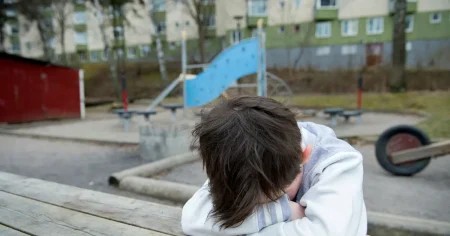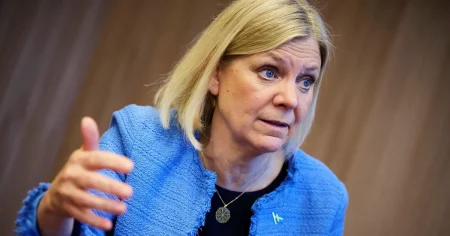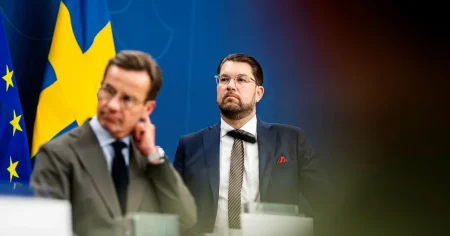The festive season of December brings with it traditional celebrations like St. Lucia’s Day and Christmas concerts in preschools. However, a growing number of parents are missing out on these cherished moments, excluded from the simple joys of sharing juice in plastic cups, nibbling on hard gingerbread cookies, and witnessing the wobbly procession of children dressed as Lucia figures, struggling to stand still while singing Christmas carols. This exclusion extends beyond holiday festivities; parents are increasingly detached from the everyday life of their children in preschool, the very place where their children spend a significant portion of their waking hours. This disconnect is both peculiar and paradoxical.
Paradoxically, despite an unprecedented level of documentation surrounding preschool activities and increasing demands for parental involvement, parents are effectively kept at arm’s length. The shift began in 2018 with the implementation of GDPR, the General Data Protection Regulation. While crucial for protecting the privacy of individuals facing threats and living under protected identities, this regulation has had unintended consequences for preschools. It restricts the sharing of identifiable photos and videos of children, even internally amongst staff. Simultaneously, preschools are mandated to document their daily activities, resulting in a deluge of photos and videos – of anonymous backs and hands – used as illustrations in bureaucratic reports. This might be manageable if preschools had ample time and resources, but the reality is far different. Most preschools struggle to meet the recommended staff-to-child ratios, leaving educators overburdened and barngroups overcrowded.
The COVID-19 pandemic further solidified the trend of parent-less events, from coffee mornings to festivities and graduations. Now, explanations for excluding parents range from concerns about children feeling uncomfortable being ”put on display” to logistical challenges. While some children might genuinely experience discomfort in such situations, and their feelings should be respected, preschools shouldn’t prioritize eliminating all potential discomfort at the expense of valuable experiences. Preschool’s role is not to create a perfectly comfortable bubble, but to prepare children for life through play and learning, which often involves navigating social situations. Generally, preschool-aged children relish sharing their accomplishments and classroom experiences with their families.
The current dynamic raises several questions: Why are parents becoming increasingly marginalized from their children’s daily lives and the preschool environment? Why are they simultaneously expected to complete detailed questionnaires and engage with endless paperwork about their child’s progress toward pedagogical goals? While the answers remain elusive, many parents would likely prefer to trade the tedious theoretical ”participation” for the opportunity to witness their child’s joy and pride in a small-scale Lucia procession, however imperfect it may be. The simple act of sitting on a miniature chair and watching their child sing ”Staffan var en stalledräng” with enthusiasm holds far greater meaning than reviewing impersonal reports.
This detachment between parents and preschools creates a missed opportunity for meaningful connection. It raises concerns about the nature of parental involvement, shifting it from active participation to passive consumption of reports and questionnaires. While documenting activities is important, the current system prioritizes bureaucratic documentation over genuine engagement. The emphasis on anonymity, driven by GDPR, further contributes to the disconnect, turning children into faceless subjects in reports rather than individuals within a vibrant community. The resulting lack of personal connection diminishes the sense of shared experience and potentially weakens the crucial partnership between parents and educators.
Ultimately, the current situation presents a challenge for preschools. Balancing the need for documentation and privacy with the desire for meaningful parental involvement requires careful consideration. Rethinking the format of reports, incorporating more personal narratives and anecdotes, and finding creative ways to involve parents in the classroom while respecting privacy could bridge the existing gap. Prioritizing authentic connection over bureaucratic processes would not only enrich the preschool experience for children and parents but also strengthen the vital partnership between home and school, fostering a more supportive and inclusive environment for all.














